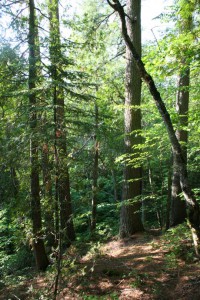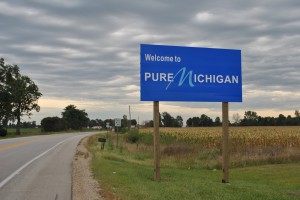To praise and protect: holiday thoughts on Michigan’s public lands
Michigan’s woodlands and waters are warming up, breaking into bloom, and will welcome thousands into their spring-into-summer embrace this beautiful holiday weekend. For me, our annual outdoor awakening brings to mind two simple observations about Michigan’s public lands.
1. They are awesome.
Case in point: I have the privilege of working with the Pigeon River Country Advisory Council to advise the Michigan Department of Natural Resources on management of the largest block of contiguous public land in Michigan’s Lower Peninsula. It’s a job I take seriously, and I’ve taken some time learning and hoping to understand the place.
I spent Wednesday afternoon poking around the 105,000 acres on foot and by four-wheel drive, and was witness to: three elk crashing away into shadowy trees; a clear small stream bubbling as wind whispered high in tall pines above; and an old log shelter perched atop a broad river valley with blue skies stretching away without end. Trillium in bloom, birds chirping spring through the aspen groves, mushroom hunters prowling the miles of two-tracks and logging roads.
This trip, like too many in my full-time, new-dad lifestyle, was squeezed into the scant few hours before an evening meeting. The PRC is huge, its ecological communities and landscapes ranging from dark cedar swamps to warm, sandy ridges baking in sunlight. In half a dozen such trips over the last year or so—a few camp nights, a handful of slow drives, some long talks and longer hikes, a few books and a winter trail run—I know I’ve barely scratched the surface of the Pigeon River Country. Such places are rich, deep and challenging, and reward nothing so much as time and careful attention. Read more














